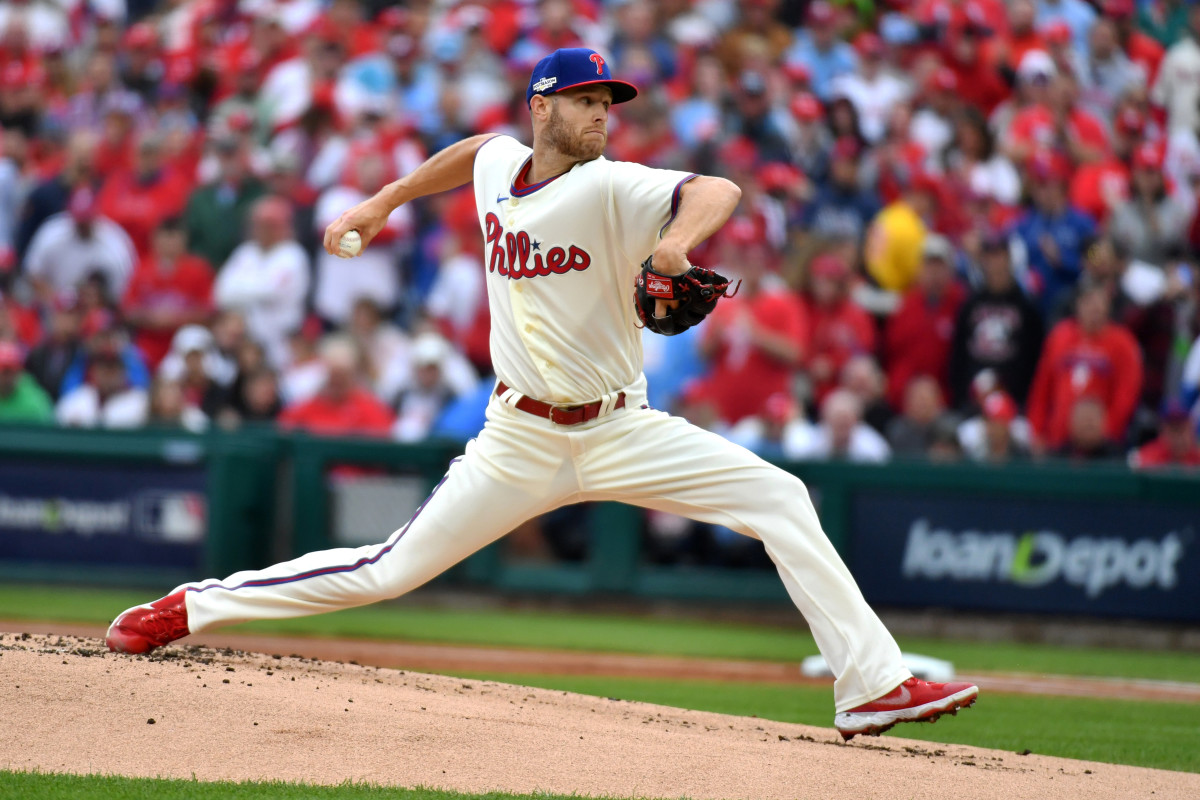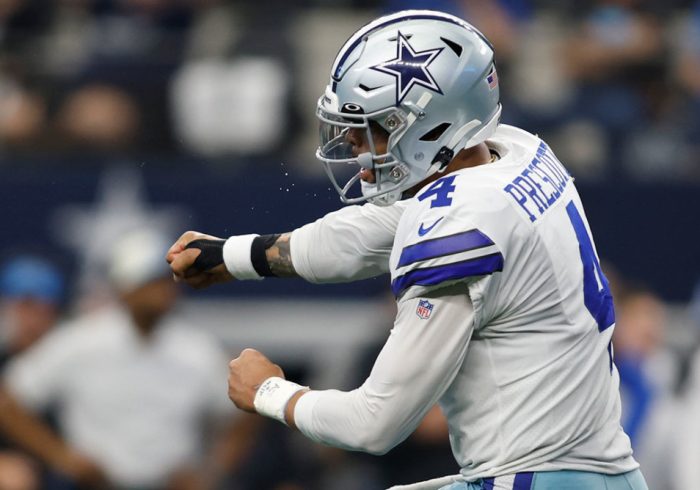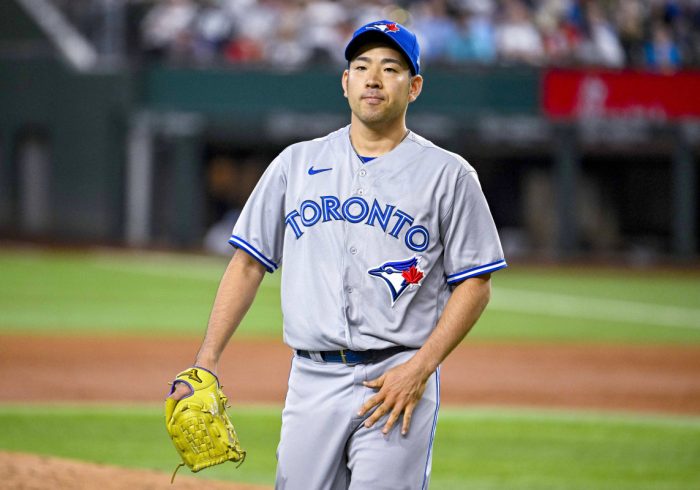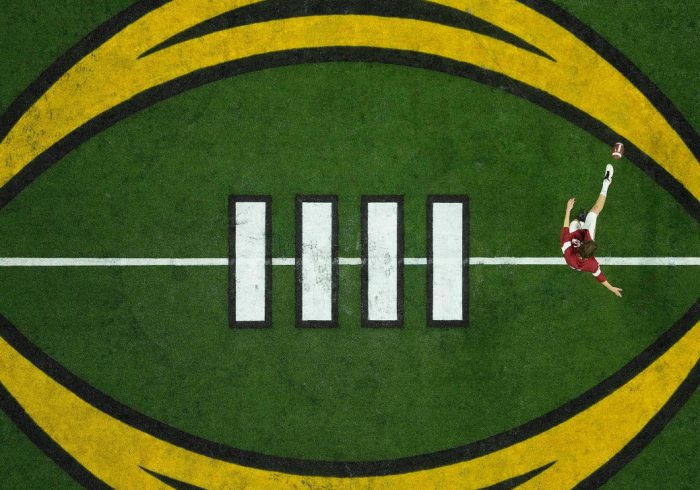The Astros have yet to lose in the postseason, going 7–0 against the Mariners and Yankees. So how could the Phillies, a club with 87 wins in the regular season, the fewest of any National League playoff team, win four of seven against the American League champs? Here’s a blueprint for how Philadelphia could deliver yet another case of World Series heartbreak from the NL East to Houston.
Saddle up and ride the horses
It’s become en vogue to pull starting pitchers early in October, but the Phillies would be wise not to adhere to that doctrine as steadfastly as many teams do these days. Their top two starters, Zack Wheeler and Aaron Nola, have served them well thus far and it would probably behoove Philadelphia not to rely too much on a relatively shallow bullpen. (That being said, manager Rob Thomson’s leaving in Wheeler to face Atlanta’s Matt Olson in Game 2 of the NLDS after he’d just hit Ronald Acuña Jr. and walked Dansby Swanson with two outs in the sixth inning of a 0–0 game was taking this advice too far.)
Even including the three runs Wheeler ended up allowing that inning in his team’s lone loss to the Braves and Nola’s rough NLCS Game 2 outing, the dynamic duo has recorded a 2.32 ERA in 42⅔ postseason innings compared to Philadelphia’s 11 other pitchers combining for a 3.78 ERA in 54⅓ innings. In other words, Nola and Wheeler have accounted for 44% of the Phillies’ postseason innings and been charged with just 33% of their earned runs. Philadelphia has somehow still managed to win all four of its playoff games not started by the staff’s two co-aces. But it’s hard to imagine that continuing against Houston, especially with how well the Astros hit left-handed pitchers such as Philly’s likely Game 3 starter, Ranger Suárez—whom Houston pummeled for six runs in three innings on the second-to-last day of the regular season.
The Astros were MLB’s second-best team against lefties during the regular season by wRC+, an all-encompassing statistic that rated them as 24% above average against southpaws.
Lefty slugger Yordan Alvarez slashed .321/.412/.586 vs. lefthanders during the regular season, and he provided Houston’s signature moment of the playoffs by launching a walk-off homer against Mariners lefty Robbie Ray in Game 1 of the ALDS after Ray was brought in solely to retire him. Houston’s other hard-hitting lefty, Kyle Tucker, was also above average against southpaws (103 sOPS+), hitting 13 of his 30 homers against lefties in 163 fewer at bats than he had against righties. Those two combined for a homer and two doubles in four plate appearances against Suárez on Oct. 4.
Still, it’d be nice to have a couple of lefties lined up to take on those guys, yet José Alvarado is the only reliable lefthander in Philadelphia’s bullpen—especially after Brad Hand and Bailey Falter, who may not even make the World Series roster, were awful in the NLCS. So if the Phillies relief corps is forced to face the heart of Houston’s order more than once after Wheeler and Nola exit their starts, things could get dicey. And while managers are often reluctant to let their starters run through opposing batting orders a third time, Wheeler and Nola fared better than the league average in that scenario this year (Nola was actually even better when facing hitters for the third time than the second time). Philadelphia’s pitching staff has been built around its two horses, so the Phils should ride them on the biggest stage.
Keep swinging for the fences
Harper’s two-run homer in the eighth inning of NLCS Game 5 made the difference in the Phillies’ pennant-clinching win.
Matt Rourke/AP
Our own Tom Verducci highlighted earlier this month how imperative it’s become for teams to outhomer the opposition in the postseason. The Phillies have become the latest team to support that theory, winning all six of their games in which they’ve outhomered their opponents and going 3–2 when they haven’t.
While Philadelphia’s pitching staff has undoubtedly performed admirably over the last few weeks, it’s the offense’s ability to uncork timely homers that’s stuck out. The team’s 16 home runs and .442 slugging percentage during the playoffs lead all teams. That approach has helped them score 5.18 runs per game against elite competition, nearly matching the Dodgers’ league-leading mark of 5.23 runs per game during the regular season.
Rhys Hoskins has just eight hits in 44 postseason at bats for a .182 batting average, but he’s been a positive contributor because five of those knocks have been home runs. Kyle Schwarber is similarly sitting on the Mendoza line with a .200 batting average in 35 ABs, but three of his seven hits have been home runs, all of which came in Philadelphia’s first three NLCS wins against San Diego.
It’s especially important to keep the face of the franchise hot. After going 11–6 in games when Bryce Harper homered during the regular season, Philadelphia has won all five games in which Harper has gone deep during its Cinderella run, with three of his bombs bringing home the go-ahead run. He’s been, by a wide margin, the Phillies’ best hitter during the playoffs, batting .419 (18-for-43) with six doubles, five HRs, 11 RBIs, 10 runs scored and just seven strikeouts. The NLCS MVP seems destined to be involved in any offensive onslaught the Phillies inflict upon the Astros.
Watch the World Series live with fuboTV: Start a free trial today.
Limit the defensive lapses
No member of the Phillies’ infield has come as far defensively as third baseman Alec Bohm.
Jeff Roberson/AP
Philadelphia’s defense has been a consistent weakness under the front-office regime led by Dave Dombrowski, who has prioritized offense and pitching over fielding during his tenure. That was no different for much of this season, as the Phillies ranked 29th in outs above average (-35) and runs above average (-29), above only the Nationals in both cases, and 25th in defensive runs saved (-34).
However, the unit has improved quite a bit in 2022, in part due to the replacement of Didi Gregorius at shortstop with Bryson Stott and Edmundo Sosa over the last couple of months of the season. As my colleague Emma Baccellieri pointed out in her recent piece on Philadelphia’s improved infield defense, the Phillies’ infield accounted for -13 infield outs above average in May, ranking 28th out of 30 teams. That number improved to +10 (11th in MLB) by September. The defense as a whole also ended up with just 69 errors during the regular season, tied for the third-fewest in MLB. They’ve committed five errors in 11 postseason games, a 73-error pace over a 162-game season.
That aspect of the game will be thoroughly tested by the Astros, who were the majors’ second-best team this season at putting the ball in play with a 78.7% contact rate. Philadelphia came perilously close to blowing Game 1 of the NLCS with a poorly attempted double play in the ninth inning. The Padres didn’t capitalize on that mistake. The Phillies can’t expect the Astros to be so forgiving.
More MLB Coverage:
• Harper’s Legend Grows As He Sends Phillies to the World Series
• The Astros Beast vs. the NL East … Again
• Victory Belle: Inside the Phillies’ Post-Win Celebration
• Jean Segura’s Wild Ride Takes Phillies Closer to the World Series
• Phillies Manager Rob Thomson Having One Heck of a Postseason



